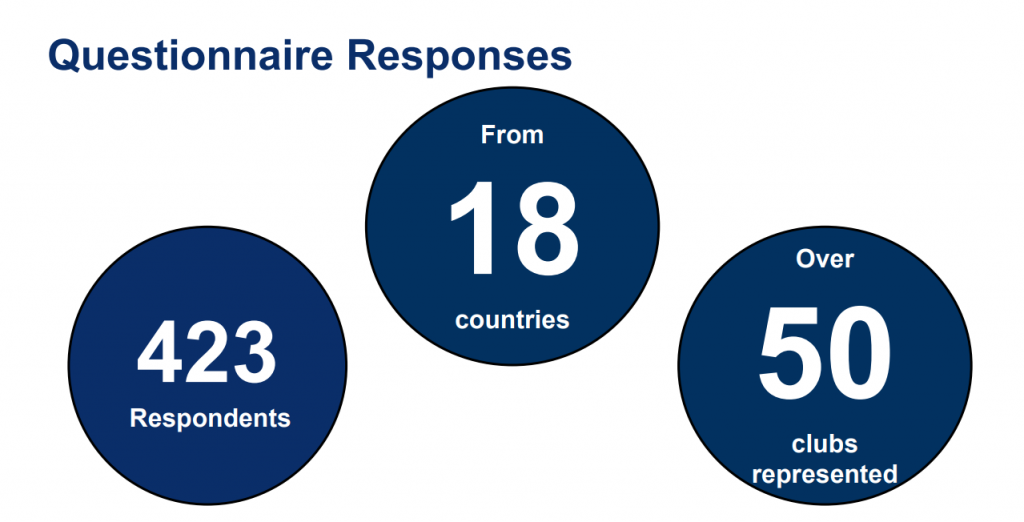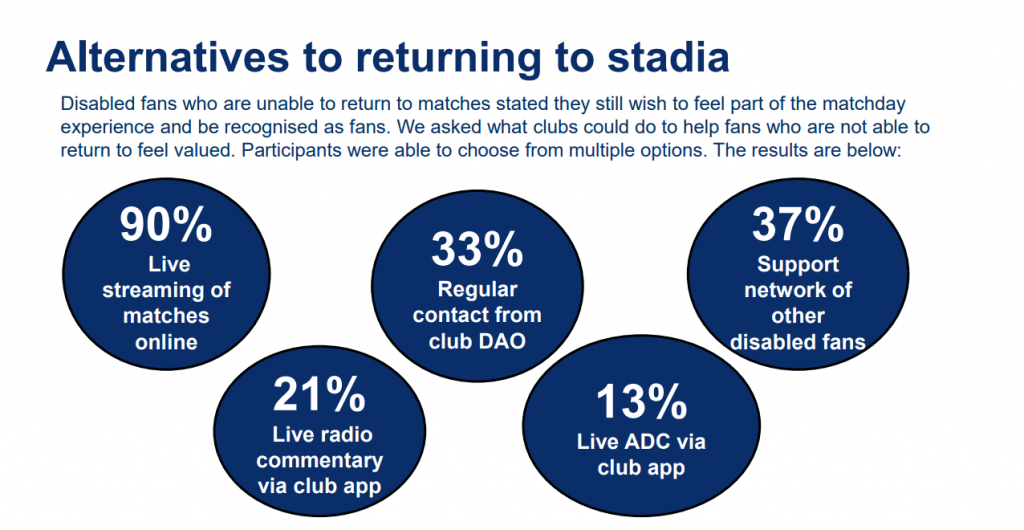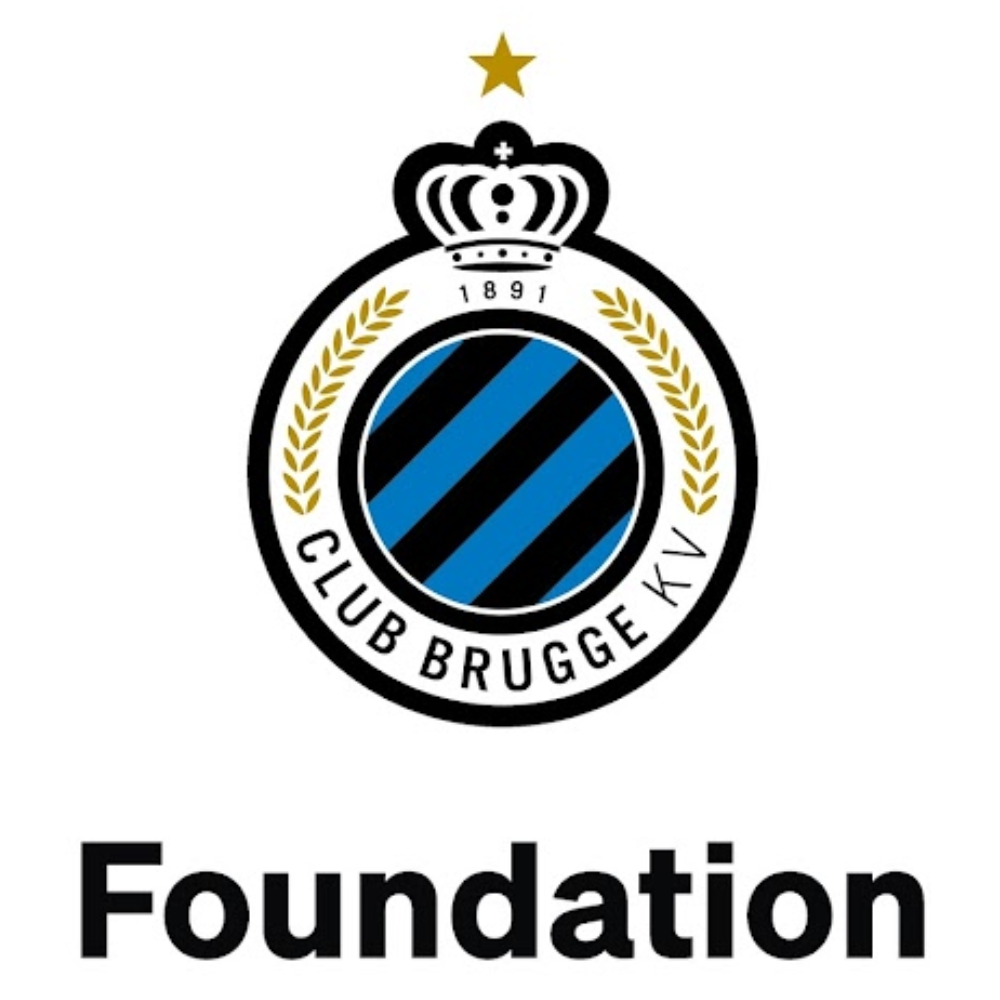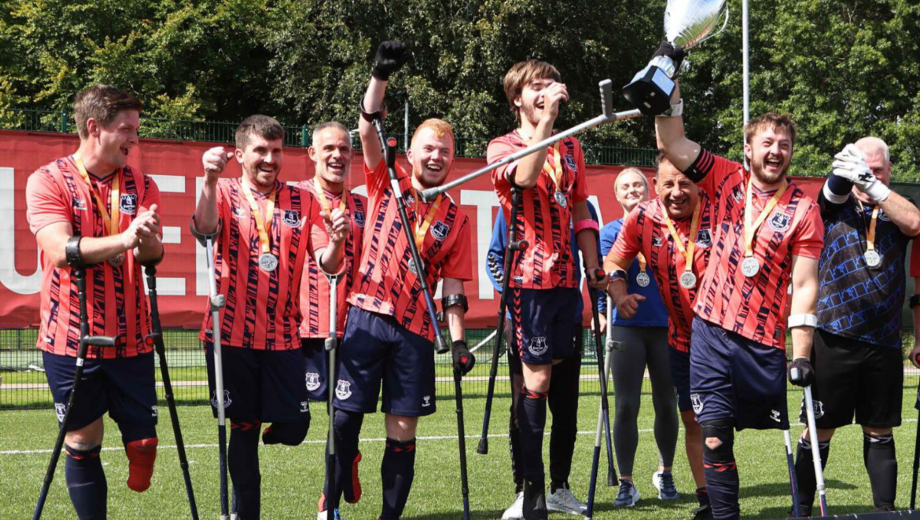CAFE Publishes Covid-19 Impact Report
The Centre for Access to Football in Europe (CAFÉ) has published a summary report of their research project into the impact of the Covid-19 pandemic on sports fans with disabilities. To gain a better understanding of the impact of the pandemic, and in particular the suspension of live matches, CAFE surveyed over 400 fans with disabilities and people with long-term health conditions, and their advocates, across Europe. Fans were asked about how being unable to attend live matches was affecting their lives and wellbeing, and any concerns they had about the potential return to stadiums.
The pandemic has obviously had a significant effect on everybody, but people with disabilities have been particularly affected with many labelled as ‘high-risk’ and unable to maintain the same level of social interaction as able-bodied people. One fan with disabilities remarked that the pandemic has, “reduced my social interaction massively and taken away a simple pleasure from my life.” Another said, “the suspension [of live matches] has had a negative impact on me, as going to matches is my main opportunity to socialise. I miss my friends from the stadium, I miss supporting my team. It’s not the same watching on TV, not the same joy.”

47% of CAFÉ’s respondents said that they had concerns about returning to live matches, with 15% stating that they would not return until a fully-tested vaccination has been made available. Other fans have been advised by their doctors that it is not yet safe for them to return.
A Spanish fan said, “I am concerned about other people, and if they will respect the new rules at stadiums.”
The impact of the pandemic is not limited just to social interaction. 65% of their respondents were season ticket holders for the 2019/20 season, with 41% having already renewed for the next season. Fans with disabilities unable to return to matches were asked what their clubs could do to continue to support them. 90% were in favour of live matches being streamed online, whilst 37% felt that they would benefit from a support network of other fans with disabilities.

Fans were also asked about public transport, and 87% of respondents said they would not use it to attend matches when they can return to stadiums. Similarly, a Turkish fan remarked that they were concerned whether limitations on public transport would make it more difficult for them to get to the stadium.
CAFE Managing Director Joanna Deagle said, “Our research has highlighted that people with disabilities are concerned that they will not be included in the preparations for the return to live matches. It is crucially important that accessibility is identified as a key issue in planning, and this is taken as an opportunity to build back better than ever before with a more inclusive, welcoming and safe matchday experience for all disabled fans.”
The guidance CAFE has created aims to support the footballing family to ensure that the disproportionate impact of Covid-19 on disabled people does not continue to be felt once they are back in the stadiums. A positive dialogue between clubs and their disabled fans is vital, both in removing barriers to an accessible return and also in showing their continued value to their clubs in the meantime”, added Joanna.
Access the CAFE Covid-19 Impact Report here.

G-team




